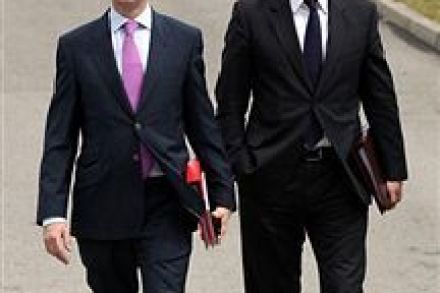Hughes leaps to the coalition’s defence
Simon Hughes is defending his party’s core interests with singular ferocity. Today, he has turned on Labour’s decision not support the AV bill. Hughes told the BBC: ‘They can’t, in any logic, oppose the idea that you have equal numbers of voters per seat. And they are trying to pretend somehow putting equal numbers of voters per seat proposal to go with AV makes it something they can’t support. It is an indefensible position, they are playing games, and their new leader will hugely embarrassed by this decision.’ It’s clever politics from the point of view of the coalition: get the Lib Dems to attack Labour’s apparent duplicity from the


















